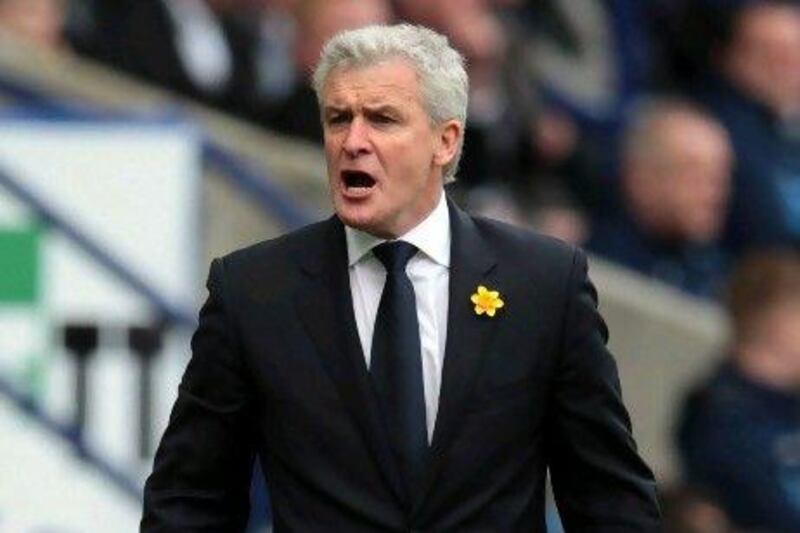If you are after genuine insight into Mark Hughes, the Queens Park Rangers manager, his autobiography is not the place to find it. Sparky: Barcelona, Bayern & Back is a contender for the worst footballer autobiography ever to grace the printing press and runs to just 81 pages of text.
The only passages of note are the ones where Hughes is dismissive of his time playing for Barcelona, where his attempts to learn Spanish amounted to being able to ordering two drinks. And where he refers to one of the world's great football clubs as "German jokers Bayern Munich".
Hughes has won few friends or admirers since, except for the trusty coaching trio of Mark Bowen, Kevin Hitchcock and Eddie Niedzwiecki he takes with him from club to club.
"Hughes is the most rude and ignorant man I have met in football," said someone who worked with the Welshman when he was the manager at Fulham.
It is the inflated opinion of himself that saw him quit Fulham last June, apparently believing that he was in the frame for the Chelsea job.
He questioned Fulham's ambition but his decision to walk out on a club that finished eighth in the Premier League drew a furious response from Mohamed Al Fayed, the chairman, who described Hughes as "a strange man".
"He is not just disrespectful but entirely wrong," Al Fayed said at the time on the club website.
Hughes was a rumbustious player who seems to have carried this characteristic into management.
His Blackburn side had a reputation for being overly physical, not unlike Hughes the player, who made his name with Manchester United.
But he was perceived to be a rising star in management and left Rovers to replace Sven Goran Eriksson at Manchester City in 2008. However, he was dismissed by City four months into his second season after a run of just two victories in 11 games.
Few in exectuive positions at the Etihad Stadium have a good word to say about him, particularly as he aligned himself with his controversial adviser Kia Joorabchian and finds himself unable to resist taking a pop at his former employers and the man who replaced him, claiming Roberti Mancini had an "out of date" style and dubbing him an "absolute autocrat".
He timing was lousy as City thumped United 6-1 at Old Trafford in the wake of criticism.
Last season, Hughes had a dig ahead of City's trip to Fulham, only to see Mancini's team win 4-1.
Mancini said: "We don't know each other but I'm happy when Mark Hughes talks to the newspapers before a game because we win. He did the same before the Fulham game last November, so I'm happy if he talks about me before every game."
Asked if he would do the same to another manager, Mancini said: "No, absolutely not because I don't know all the managers. It's impossible because every manager has his own methods."
He still has his supporters, though. "I like him," says someone who works with him at Queens Park Rangers, where he took over in January after being out of work for six months. "He's serious, quiet, doesn't suffer fools, but if he knows and trusts you then I find him good to work with and a shrewd judge of a player."
Others are less generous in their appraisals, as QPR fans will be if he takes their side down.
Rangers have won just one of their eight league games under his charge. More worryingly, they've also lost to fellow strugglers Wolves and Bolton. QPR sit 18th in both the league and are accused of lax discipline.
Hughes was a fantastic footballer for Wales and United, a genuine terrace hero. Yet far from the image of the timid individual who only wanted to play football portrayed in interviews, he was aware of his value and knew how to manipulate it, as illustrated by his departure from Old Trafford.
In 1986, the United chairman Martin Edwards was singled out as the instigator of the sale of United's star striker to Barcelona and a barrage of criticism ensued.
"The only way Hughes would sign another contract was with a get-out clause allowing him to leave," claims Edwards. "If we hadn't given him a contract he would have gone for nothing. I put a clause in for £1.8 million (Dh10.3m) and I did that to protect Manchester United. I didn't want Mark Hughes to go, United didn't want him to go, but Mark Hughes decided to go.
"That never came over in the media and I got all the stick. Maybe he had committed to Barcelona halfway through the 1985/86 season and maybe by the end he didn't want to go, but he'd signed a deal with them."
Despite being paid "telephone numbers", Hughes was homesick and returned to Old Trafford in 1988, via a briefly successful spell in Bavaria with the "jokers", and was a star of the United side which won the league for the first time in 26 years in 1993 and the team that won the double a year later,
Hughes left Old Trafford for a second time in 1995, before continuing to flourish as a player at Chelsea. His career wound down at Southampton, Everton and Blackburn, his professionalism and dedication saw him playing at the top level until he was 38, while at the same time being manager of his country, Wales.
That role was initially shared and temporary, but Hughes impressed, more so because he wasn't seen as a natural for management.
Now we will have to see if his natural fighting qualities are enough to save QPR.
Follow us
[ @SprtNationalUAE ]






